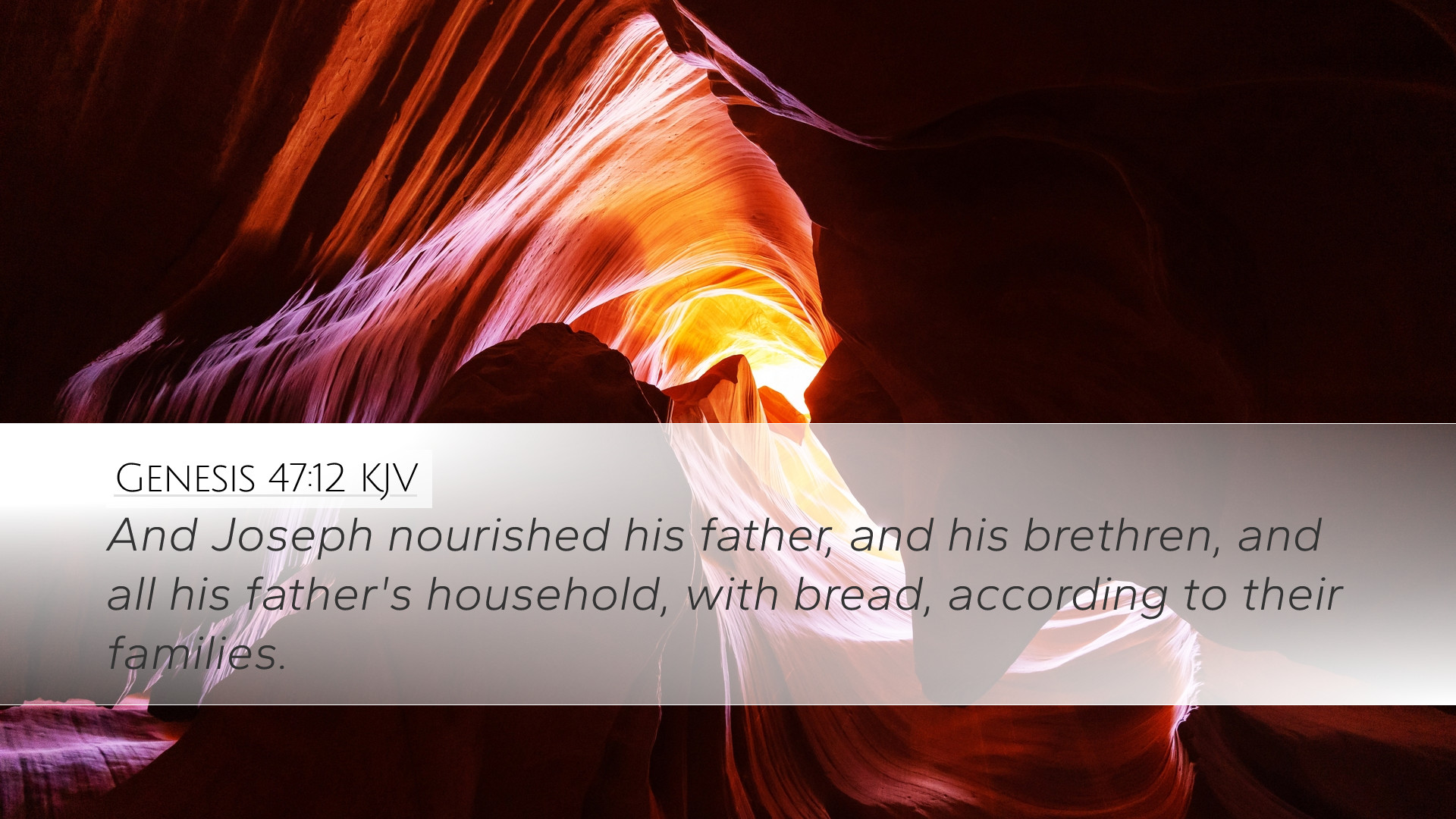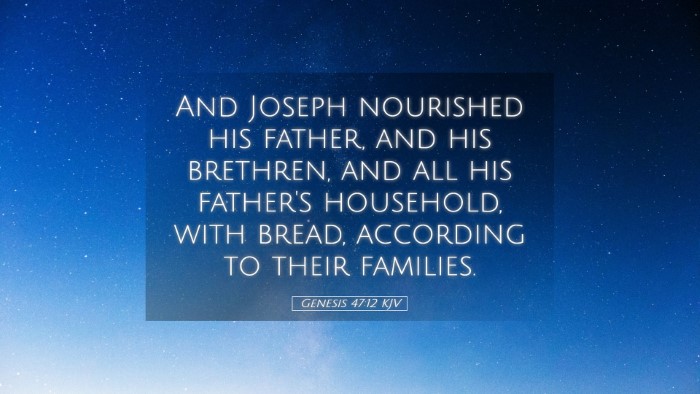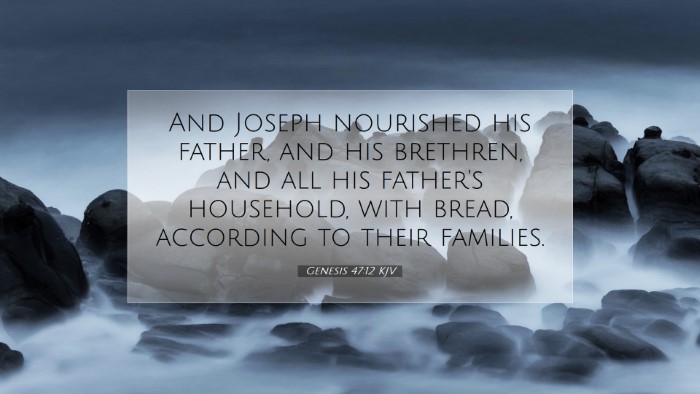Commentary on Genesis 47:12
Verse: "And Joseph nourished his father, and his brethren, and all his father's household, with bread, according to their families." (Genesis 47:12)
The context of this verse is significant as it captures a moment of provision during a time of famine. Joseph, who has ascended to a position of great authority in Egypt, becomes the instrument of God's salvation for his family and the broader world. This commentary will explore key themes and insights from public domain commentaries by Matthew Henry, Albert Barnes, and Adam Clarke.
Contextual Analysis
This verse comes in a pivotal chapter of Genesis, where Joseph has just reunited with his brothers after years of estrangement. The famine in the land has pushed his family to seek sustenance in Egypt, where Joseph, now the governor, plays a crucial role in their survival.
Matthew Henry emphasizes that Joseph’s actions demonstrate not only his loyalty to his family but also his role as a savior figure. By nourishing his father and brothers, he exemplifies the love and responsibility that one should have towards family, especially during difficult times.
Theological Implications
- Divine Provision: Joseph’s provision reminds us of God’s providential care. Albert Barnes notes that this act of nourishment signifies a fulfillment of God’s promise to sustain His people, highlighting that the hardships faced can lead to greater divine purposes.
- Familial Love: The emotional and relational aspects of this verse cannot be overlooked. Adam Clarke observes that Joseph's provision is a profound act of love and reconciliation, indicating that even in trials, familial bonds hold valuable significance.
Practical Applications
For pastors and theologians alike, this passage offers important lessons about community and support within the body of Christ. In times of crisis, believers are called to nourish and support one another, mirroring Joseph’s generosity.
Matthew Henry encourages the application of this verse in a spiritual context, suggesting that in nourishing others, one fulfills Christ’s command to love and serve. This connection to New Testament themes underscores the continuity of God’s intention for His people.
Insights on Family Dynamics
This verse demonstrates Joseph's central role in the survival of the patriarchal family unit. Albert Barnes interprets the act of providing bread as a metaphorical representation of Christ as the Bread of Life, showing how God meets physical and spiritual needs alike.
Adam Clarke delves deeper into the implications of providing for one's family, recognizing that Joseph’s efforts extend beyond mere sustenance; they encompass emotional and spiritual support, fostering unity and healing among past grievances.
Conclusion
Genesis 47:12 encapsulates more than just a physical provision; it reflects God’s overarching plan for His people and their relationships. The insights drawn from the commentaries highlight the importance of nurturing connections, fulfilling familial responsibilities, and embracing a deeper understanding of divine providence.
For scholars and students of the Word, this passage serves as a reminder of the active role one must take in supporting others, particularly in times of distress. It invites reflection on how individuals can embody the principles demonstrated by Joseph, ensuring that the legacy of love, provision, and reconciliation continues in their own communities.


